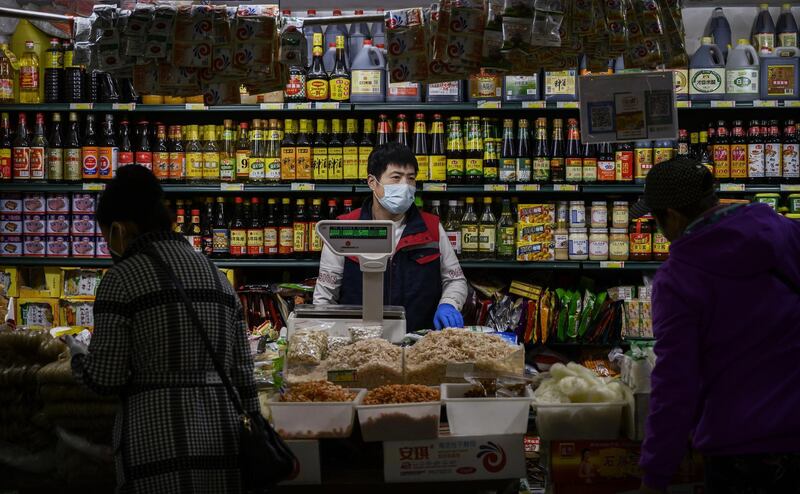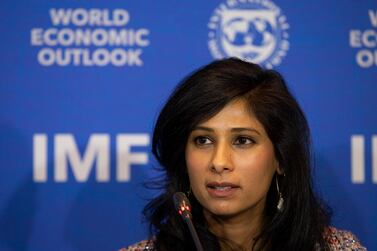The coronavirus pandemic could drive a 'deep recession' in the global economy this year and scar the economy through 2021, according to Moody's Investors Service.
Advanced economies within the G20 group of the world’s biggest economies are expected to contract by 5.8 per cent this year as a result of the pandemic. Even a gradual recovery in 2021 is not expected to revive their gross domestic product to pre-pandemic levels, the agency said.
Meanwhile, emerging economies within the G20 fold, with the exception of China, are expected to contract by 3.5 per cent from a growth forecast of 3.2 per cent prior to the outbreak. China, the world's second-largest economy, is forecast to grow by 1 per cent this year.
"The contraction in economic activity in the second quarter will be severe and the overall recovery in the second half of the year will be gradual," said Moody's vice president Madhavi Bokil.
"Recovery is also likely to be uneven across sectors as fear of infection will likely alter consumer behaviour even after restrictions on business activity and mobility are lifted," she added.
The global economy is set to experience its worst recession since the 1930s, with growth expected to contract 3 per cent in 2020, according to the International Monetary Fund. The Washington-based lender's projection was a sharp revision from the 3.3 per cent expansion it had previously forecast.
The IMF, however, has a more optimistic view of China, where the pandemic began. The country's growth is expected to decelerate to 1.2 per cent in 2020 after an expansion of 6.1 per in 2019 - its slowest pace in nearly three decades.
Moody's also predicted that consumption in sectors that involve "a high degree of human contact" such as dining out, visiting movie theatres, flying and mass transit will take a while to normalise.
"Many businesses will struggle to stay afloat in these conditions, and eventually some will close regardless of policy support to the economy," said Ms Bokil.
The agency also expects oil, which has lost 70 per cent of its value since its most recent peak in January, to remain low. Brent, the most widely traded crude commodity benchmark is expected to average $35 per barrel this year, while the North American West Texas Intermediate benchmark is expected to move up to $30 per barrel.
Moody's expects a revival in demand for oil in the second half of the year due to the easing of social distancing measures.
The agency expects both Brent and WTI to pick up to $45 and $40 per barrel in 2021, due to "a gradual improvement in economic activity".







